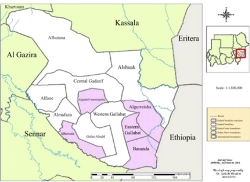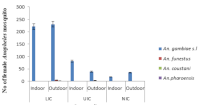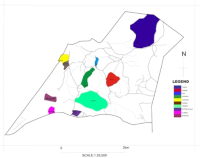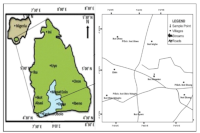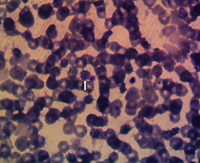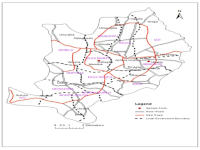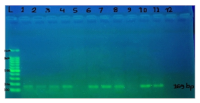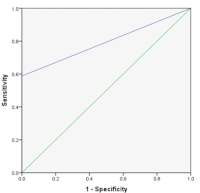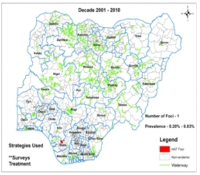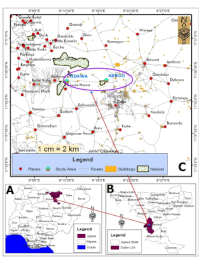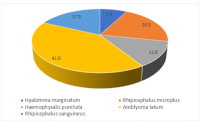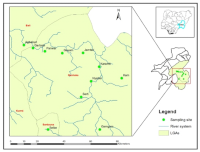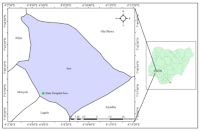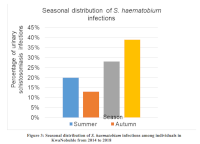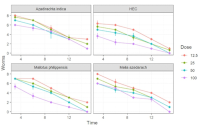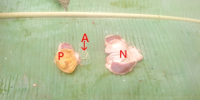Editorial Advancing Parasitology Research for Public Health Impact
The current issue of the Nigerian Journal of Parasitology highlights a broad spectrum of parasitological research from various regions, underscoring the importance of parasitic diseases in both human and animal populations. With a focus on public health implications, these studies contribute valuable insights into the prevalence, risk factors, and control strategies for parasitic infections. Twenty-five impact research papers were published with 28% from international authors, from Iraq, Pakistan, Cote d’Ivoire, and South Africa.
One significant study, examining Leishmania infection in dogs from Al Gadarif State, Sudan, adds to the global discourse on zoonotic diseases. Given the role of dogs as reservoirs for human leishmaniasis, this research is crucial for understanding transmission dynamics and informing control measures. Similarly, the assessment of malaria vector behaviour in agrarian communities in Kano State, Nigeria, reflects the need to tailor vector control interventions to specific environmental and socio-economic conditions.
Zoonotic parasites, including Toxoplasma gondii and Giardia species, continue to be a concern in veterinary and public health sectors. The survey from Pakistan presents important findings for controlling these parasites in clinical settings. In addition, the seroprevalence of toxoplasmosis among female students in Côte d'Ivoire points to the widespread risk posed by this parasite in both endemic and non-endemic regions.
A focus on soil-transmitted helminths (STH) is evident in several contributions, including the survey of helminth eggs in playgrounds in Abuja, Nigeria. The public health importance of STH cannot be overstated, as it affects millions globally, particularly school-aged children. Studies examining the effects of environmental parameters on geohelminth prevalence in Akwa Ibom State, Nigeria, underscore the need for integrated control strategies, combining preventive chemotherapy with improvements in water, sanitation, and hygiene (WASH).
The antimicrobial properties of Vernonia amygdalina (bitter leaf) extracts, tested against selected bacteria, represent another important area of research. Traditional medicinal plants remain a promising source of novel therapeutics, particularly in regions where access to conventional medicine is limited.
Several contributions focus on parasitic infections in animals, such as the prevalence of haemotropic Mycoplasma infection in dogs in Abeokuta, Nigeria, and the diversity of ectoparasites in livestock in Ebonyi State. These studies emphasize the intertwined health of humans and animals, advocating for a One Health approach to disease control.
In vector biology, research on the seasonal composition of indoor resting mosquitoes in Jigawa State, Nigeria, is timely, given the ongoing fight against malaria. Furthermore, the retrospective study on urinary schistosomiasis in Nelson Mandela Bay Health District, South Africa, underscores the need for sustained surveillance and treatment efforts to combat neglected tropical diseases.
This issue also features novel approaches to parasite control, such as the use of iron oxide nanoparticle-based formulations to enhance pediculicidal activity, and in-vitro studies on the anthelmintic effects of Azadirachta indica (Neem) and other plants. These innovations could lead to more effective and accessible treatments for parasitic infections.
Finally, case reports on Ascaridia galli-induced gizzard atrophy in broiler chickens and a rare case of scabies balanitis provide unique insights into less commonly discussed parasitic conditions.
In conclusion, the research presented in this issue demonstrates the continued importance of parasitology in addressing global health challenges. By focusing on the prevalence, risk factors, and control of parasitic diseases, these studies contribute to the growing body of knowledge necessary for developing effective public health interventions. The Nigerian Journal of Parasitology remains committed to disseminating high-quality research that informs policies and practices to reduce the burden of parasitic diseases worldwide. I sincerely hope you will enjoy this current issue. Feedback is welcomed.
Thank you.
Sincerely,

Prof Uwem F. Ekpo fppsn
Editor-in-Chief
Nigeria Journal of Parasitology
September 15, 2024
Published: 2024-09-23


